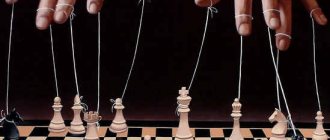You are about to have an important conversation, and you are so worried that circles are swimming before your eyes? Don't know how to convey your point of view to your interlocutor?
Then I know what to do!
It seems so simple - to say what you think. But often, as you choose your words, the meaning gets lost, despite your best intentions. We say one thing, and the other person hears something else - this is how misunderstandings, disappointments, and sometimes conflicts arise. Luckily, you can learn to communicate more clearly and effectively. If your goal is to improve understanding with your colleagues, boss, children, clients, you want to properly present your product or services, effectively negotiate and conduct business meetings - it is important for you to master communication skills that will allow you to effectively convey your thoughts to other people and feel yourself confident and understood.
Benefits of communication skills:
- the opportunity to achieve success in different areas of life (career, family life, creativity);
- gaining spiritual harmony, getting rid of complexes and excessive isolation;
- the opportunity for self-realization in all spheres of public life;
We show signs of communication skills in everyday life. But some people can be called the “life of the party,” while others are only silent.
And if you look at sociable people, you will notice that they easily achieve their goals and achieve success in life.
Sociability and self-confidence also help in business. Many employers choose talkative candidates for a vacant position, because such an employee can easily find a common language with the client, and accordingly, he will bring profit to the company.
Rules for successful communication
The famous speaker Dale Carnegie published the book “How to Win Friends and Influence People” more than 80 years ago. In it, he described the most effective basic communication techniques and rules that will help introverted and shy people become excellent conversationalists. These rules remain relevant to this day.
- Genuinely showing interest in other people. Often we find it more pleasant to talk with those who are interested in our personality and ask various questions regarding our opinion and experience. Therefore, be sure to ask questions to your interlocutor. But don't turn the conversation into an interrogation with bias. Everything should be natural and sincere, and for this you must experience genuine interest in your interlocutor.
- Smile. A person who smiles evokes positive feelings in us. Even if we don’t know him personally. During a conversation, your smile is proof that the interlocutor is pleasant to you and you like talking to him. Just try to avoid a fake smile. Smile not only with your mouth, but also with your eyes, soul, and heart.
- Proper name. From birth, the sound of our name is the most pleasant sound. Therefore, always address others by their first and middle names if necessary. The name indicates the individuality of a person, his originality and uniqueness. This is the simplest compliment you can give someone. Just call him by name.
- Listening skills. In conversation, people usually prefer to talk more than listen. Often they simply wait for their turn to speak and do not try to listen and understand what they are told. Especially during an argument. If you listen carefully to your interlocutor, ask him clarifying questions and successfully use phrases that he said earlier during the conversation, then you will pleasantly surprise him. Listening and hearing your interlocutor is much more important than speaking.
- Interesting topics for conversation. Talk about topics that are interesting to your interlocutor, and finding out about them is quite easy and simple, using rule No. 1 - showing sincere interest. When a person talks about something exciting, his eyes light up. Even if this topic does not seem particularly interesting to you, still try to listen. Surely you can learn something valuable and interesting for yourself.
- Compliments. Each of us has unique characteristics that are worthy of admiration. Try to notice them in your interlocutor and sincerely express your admiration, approval, and praise. Your compliments should not be exaggerated and resemble undisguised flattery. Falseness always feels good. A timely, sincere compliment will be very pleasant to your interlocutor and will make the conversation even easier and more relaxed.
Why develop communication skills?
What is special about a sociable interlocutor? First of all, such a person loves to communicate. He enjoys the process of communication, tries to learn something new, he meets new people, gets a positive experience and teaches his interlocutor something.
The ability to communicate allows you to successfully build life priorities. After all, flexibility, loyalty in conversation, and understanding of the interlocutor help achieve the final goal.
If you develop these skills, then you may well become a leader in any team, you will be able to achieve promotion on the career ladder, and learn to show initiative in various issues.
An interesting and sociable person is always noticed; he becomes the epicenter of everyone's attention.
Look at the entertainment TV presenters. They are always sociable and open. They understand when it is appropriate to joke or ask this or that question.
Innate or learned quality?
There are different theories about the nature of shyness. Some scientists suggest that this is an innate property of temperament. Socially timid people are endowed with a more sensitive nervous system, are easily excitable and vulnerable. They instinctively protect themselves from intense contact, preferring solitary activities. Social interaction costs them enormous energy and stress, so they avoid it.
Another theory is that people learn to be shy. If parents categorically demanded obedience and admired modesty and obedience, there is a high probability that the child will internalize such behavior. The personality of the parents themselves, as role models, plays an important role. When a family lives separately and in isolation, does not communicate with neighbors and friends, the child does not have the opportunity to train communication skills. He may come to the conclusion that the outside world is a threat, and he needs to be extremely careful in communicating with anyone other than family members.
People also prefer to avoid communication if they have already had negative experiences in similar situations. For example, while speaking in front of the class, they forgot the text and were ridiculed, or their offer of acquaintance was rudely refused.
Either way, introverted people feel safer hiding in their shell without the risk of saying or doing the wrong thing or getting into trouble. When others don't know about your feelings and thoughts, they can't hurt you. However, this armor, designed to provide security, also guarantees loneliness.
If you believe that not everything is predetermined by fate, genes and early childhood, you can decide to leave your cozy house for a positive communication experience!
Types of Communication Skills
Modern psychology identifies two main types of communication skills. This is a verbal and non-verbal type.
Verbal communication
Verbal communication occurs using certain phrases, constructing sentences, and maintaining a dialogue with the interlocutor.
It is important to be able to correctly express your speech, interest listeners, and enjoy the conversation.
Read more: How to learn to speak beautifully and competently
Nonverbal communication
The nonverbal type of communication involves the use of gestures and facial expressions.
Sometimes our facial expressions can say more about us than our words.
Mirror exercises can be used to develop nonverbal communication skills. Imagine that you are communicating with your interlocutor. Watch your facial expressions and gestures.
Read further: What can gestures tell us? 75 Signs of Body Language
It is impossible to learn to communicate with people in a couple of steps. Be prepared for the fact that the process of improving public speaking may take more than one month.
Read further: Oratory for beginners: exercises and rules
Exercises to develop communication skills
Photo: Background photo created by mindandi – www.freepik.com
Record, listen, analyze
A voice recorder will help develop the talent of an eloquent storyteller. Some speakers use a video camera to look at themselves from the outside. Record the dialogues you engage in and then listen to them. Note the tone, emotional coloring, and literacy of presentation. There will probably be unsuccessful sentences, so in a calm environment, think about how you can rephrase them and improve them.
Mirror
Before an important event, sit in front of the mirror and watch your reflection: how you hold your head, control your hands, facial expressions and legs, what kind of posture you have. This is a very effective exercise. After it, it will be easier for you to behave in public.
Remember quotes, interesting facts
You can strengthen your speech with sayings and parables. If someone you are talking to has difficulty expressing their thoughts, support them with a captivating story. Add a good joke or anecdote if appropriate. This will enliven the conversation and make it more relaxed.
Sell your pen
I recently used this idea with marketing directors. It was necessary to compare two popular smartphone manufacturers. First, we named 5 advantages of Samsung over the iPhone, and then swapped them. This exercise only seems simple. But it is very useful: you will learn to argue your position and become more confident.
Smile
Smile - even when talking on the phone, typing a message, or hearing negativity from your interlocutor. Show empathy. Sincerity and kindness are the key to the soul of any person. With a smile, it will be psychologically more comfortable to communicate under stress. Internal tension will disappear, and an irritated opponent may well adapt to your positivity and become more supportive.
Forming endurance
When faced with aggression, mentally place yourself in a glass dome. At the same time, imagine your opponent as more positive, think about his positive qualities, wish the person well, just like that, from the heart.
How to develop communication skills and become a sociable person
Top tip: don't avoid communication
Are they contacting you? Don't avoid communicating with your interlocutor!
Do you feel like you are not a sociable person? Believe me, each of us can have a great conversation in any situation, but this requires time and certain training.
3 rules for overcoming your shyness or indecision
- put yourself in the shoes of your interlocutor: silence or avoidance of conversation would not be very pleasant for you;
- do training, try to act out verbal debates in front of the mirror;
- Learn from the examples of good speakers. Pay attention to how a famous politician or show business figure enters into a dialogue;
Practice visualization
Imagine that you are about to meet a person you know, but you have no desire to communicate with him. Don't avoid meetings and don't close yourself off.
Residents of megacities often do not like to actively communicate. This is understandable, a big city puts pressure and oppression on the human psyche. Sometimes people really want to hide from the annoying and noisy crowd into their own quiet corner.
But the more you withdraw into yourself, preferring virtual communication to live communication, the less chance you have of developing communication skills.
We strike up a conversation on our own. Let's show our emotions!
The special talent of a sociable person is that he is not afraid to be the first to start a conversation, maintain a conversation, or come up with a new topic for discussion.
Don't show your hostility or withdrawal. Do you know interesting cases from life? So share them with your interlocutors.
But it is important to understand that your speech should be interesting to people. Carefully monitor the behavior, facial expressions, and gestures of your opponents.
Respect your interlocutor
One of the fundamental rules for acquiring communication skills is the ability to respect your interlocutor.
You should not get into a verbal spat, proving that you are right. Even if your opponent is wrong, still learn to hear him.
It is considered great disrespect to interrupt the interlocutor, attempt to shout down, interrupt the conversation, or change the topic of the conversation.
The goal of constructive dialogue is to find so-called common ground with the interlocutor.
Watch your facial expressions, because your movements and facial expressions should show your disposition and complacency towards your opponent in the conversation.
What to do if the interlocutor himself does not respect you and is rude? Learn to respond correctly to rudeness.
Read more: 10 methods for responding to rudeness
Tip #1 – How to use “body language” (non-verbal communication)
Nonverbal communication accounts for 55% of how a speaker is perceived. This means that most of what a speaker says is conveyed not through words, but through physical signals.
There are many techniques and forms of nonverbal communication. To develop communication skills, this topic should be studied in detail. The editors of Bowandtie provide several simple techniques that will give an immediate effect.
Take the correct posture
Don't slouch - it makes you visually and on a subconscious level smaller than you are. Keep your back straight and your shoulders back. Do not cross your legs (for example, cross your legs) or cross your arms (for example, across your chest). A closed posture not only creates blocks in communication, but is also not always appropriate, and sometimes disrespectful to the interlocutor.
Do not cross your legs, arms, fingers - a closed posture creates barriers to communication
Maintain a relaxed and friendly posture. Tension can be interpreted in different ways, but always negatively. For example, like self-doubt. Get rid of the habit of touching your hair, fidgeting in your chair, and fiddling with a pen or mobile phone in your hands.
Maintain eye contact when the other person is speaking
Eye contact shows interest in the other person's words. If it is not possible to look directly into the eyes (for example, you are experiencing internal discomfort, or the interlocutor wears glasses), you should look at the bridge of the nose (the upper part of the nose adjacent to the forehead). This will create the illusion of “eye to eye.”
Try to maintain eye contact even when moving. Turning your back and the back of your head to your interlocutor is already bad form, and in the case of a tense or important conversation, this will be interpreted as a sign of disagreement, neglect or readiness for conflict.
Eye contact helps build connections
Don't squint or open your eyes too wide, trying to "act" emotions. Such facial expressions are appropriate for real feelings, but an attempt to fake them will be read and interpreted not in your favor. At best, you will be considered insincere, and this will not benefit your communication skills.
The main secret of communication skills
Do you know what the main secret of communication skills is?
This is a kind of magic elixir, thanks to which you can become a communicative person.
Everything is extremely simple. You need to enjoy communication. You should not force yourself to smile insincerely at your opponent, the person will feel false.
Know how to win people over
You need to start any business with a smile and a good mood. You must enjoy active communication. We ourselves shape the world around us. And we also create a social circle ourselves.
Treat people the way you would like to be treated yourself. And you will see positive, smart, interesting interlocutors appear around you. This rule applies to all areas of social life. Be it work activity or the sphere of personal relationships.
Tune in for the good
Never set yourself up for an uninteresting, sluggish and boring conversation, even if you have one.
Include imagination, the power of persuasion, and a good mood.
Learn improvisation, which is the pinnacle of achieving a high level of communication skills.
Try to interest your interlocutor with non-verbal gestures, switch his attention, and do not load him with too much unnecessary information.
For practice
In the meantime, the training is planned, here are a few effective communication techniques for everyday practice:
The rule of three yeses. At the beginning of the conversation, try to structure your phrases or questions in such a way that the interlocutor agrees with you three times or answers “yes.” In this case, it will be easier for you to convince him or sway him in the right direction. Do not use negative and aggressive words in your speech that will subconsciously push your interlocutor away from you: must, must, terrible, scary, failure, failure, crush, etc. Use their softer forms: would like, slight difficulties, a little anxious, would prefer, restrain. Try not to speak loudly and emotionally if it is associated with a negative description of the situation
Pay attention to the reaction of your interlocutor caused by your gestures and movements. Conversely, do not skimp on showing emotions in positive stories. Watch your tone of voice
Understanding will become difficult if any explanation is carried out in a raised voice. Learn to place accents correctly during a conversation. When communicating with aggressive or negative people, imagine a glass wall around you that does not allow the pressure and pessimism of the interlocutor to pass through. To make it easier for you to tune in to positive communication or refrain from retaliatory attacks, imagine your interlocutor as the person you respect or love infinitely. You will want to understand him and will do everything to make him understand you. In disputes, use comparisons if you are sure that we can defend our point of view. This technique will also add richness to the conversation. Pay attention to the main “weapon of attack” of your interlocutor. Mirror his behavior or phraseology and use it against him. To be convincing, use numerical examples, statistical data, rely on well-known facts and authoritative sources. At all times, the most powerful technique for both generating sympathy and escaping conflict has been and remains a sense of humor. By commenting with a joke on your interlocutor’s statement or attack, make the conversation pleasant and emotionally vivid, and you will not be forgotten.
Let's smile
Each of us will be much more willing to do business with a person who has a friendly smile on his face. It is impossible to be sociable and at the same time have a sour expression on your face. People instinctively avoid those from whom ill will emanates.
True, some supporters of natural behavior say that sincere unfriendliness is better than an artificial smile on duty. However, we prefer to communicate with smiling people. And so that our own smile does not seem glued, we “put it on” not immediately, but a second after we see the person for whom it is intended.
It's time to leave the house and stop being shy about society.
Here and below photo pixabay.com
If you've been stressing lately about not being able to connect with the right people (work colleagues, strangers at parties, or attractive girls), then perhaps you need to brush up your communication skills and figure out how to become sociable and an interesting person for them.
Even if you are the biggest recluse in the area or the leader of introverts in your department, with some self-improvement you will definitely be able to improve the situation.
Especially when you've already taken the first step by opening our indispensable guide.
We try to adapt to the mood of the other person
Communication can be compared to dancing, where you need to get in time with your partner and catch the rhythm of his movement. A sociable person has intuition that allows him to feel the mood of his interlocutor.
For example, we are returning from the store, our hands are busy with shopping, and an acquaintance stops us with a story about how wonderful he spent his vacation. We feel like a squeezed lemon, and it is overflowing with energy. At another time we would be happy to listen to him, but now his animation only causes irritation.
Or we urgently need to finish a report, and a friend is excited about her daughter’s upcoming wedding and is trying to tell us the details. Different energy levels and mismatched moods can provoke a quarrel that both parties will later regret.
A sociable person, before choosing the topic and tone of the conversation, will make sure whether they correspond to what is currently going on in the soul of the person in front of him.
Games
A good way to achieve high communication skills is through game-based training. They help each participant to open up to other people, feel free and completely relax. In such conditions, it is easiest to develop communication skills. Some games can even be used at home for joint training between parents and children.
How to play:
- Repetitions. The game involves at least 5 people. One of them becomes the leader and shows the others certain movements (claps of palms, hand movements, etc.), voicing each of them. Everyone must repeat. To make it more difficult, the presenter can name something other than the action he is performing, and the participants must correctly orient themselves and repeat exactly what was said.
- Guessing emotions. To play you need to split into 2 teams. All participants in the first group take turns showing different emotions that need to be drawn from a deck of special cards, and the second group must guess them. Then the teams change roles.
- Theatrical scenes. You can play together, and the goal will be to role-play a situation. You can come up with absolutely any events, but they must suit both participants. It is advisable to act out scenes of various conflicts until they are completely resolved.
- Origami. The game requires the presence of several participants. They all close their eyes, holding an A4 sheet of paper in their hands. The presenter gives instructions on exactly how to fold the sheet, and he should ask several times to tear it. At the end, you need to compare the results of everyone present.
Such simple games will perfectly help you achieve your goal. However, you should not expect that their use alone will be sufficient. They are best used as an additional measure or the first stage of skill development.
Team games are the best way to make new friends and open up to others.









